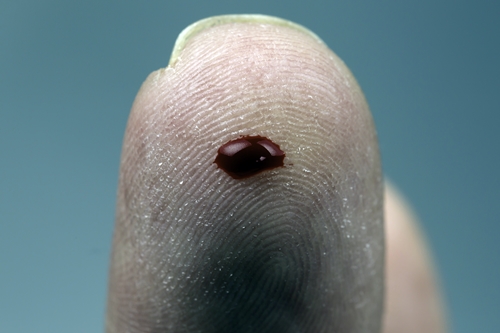25 August 2016. Researchers from academic and industry labs designed anti-coagulation treatments for people in danger of blood clots, but less likely to cause excessive bleeding than current drugs. The team from University of California in San Francisco and drug maker Pfizer published its findings yesterday in the journal Science Translational Medicine (paid subscription required).
The authors led by Shaun Coughlin, director of UC-San Francisco’s Cardiovascular Research Institute, and Thomas Mikita with Pfizer’s Centers for Therapeutic Innovation in San Francisco, are seeking better options for people facing dangerous blood clots that block blood vessels and can cause serious complications, such as stroke, if they move to the brain or lungs. Anti-coagulation or blood-thinning drugs can reduce the risk of clots forming, but many of these drugs also increase the risk of major bleeding episodes, and require careful monitoring.
For their solution, Coughlin, Mikita, and colleagues focused on a particular protein known as coagulation factor XI that promotes formation of blood clots. The protein is found in deactivated form as an enzyme, called a zymogen, in blood plasma. Blocking the actions of coagulation factor XI could limit blood clots, but addressing this protein directly up to now has proven difficult.
The team chose to design synthetic antibodies that would generate an immune response blocking coagulation factor XI functions that form clots, but limit binding with the zymogen and other anti-coagulation activity to prevent excessive bleeding. For this task, the researchers identified and adapted C24, an immunoglobulin G antibody that addresses precise biochemical actions of coagulation factor XI, and later enhanced its drug features to produce a related antibody known as DEF.
The authors first tested C24 antibodies in lab mice induced with a coagulation factor XI deficiency. The results show the antibody limited blood clots in whole blood, including clots that block arteries. Tests with DEF in mice and rabbits with induced blood clots in veins show the antibody limited blood clotting, but also prevented excessive bleeding from outer skin layers. Further tests with monkeys found DEF did not cause spontaneous bleeding over a 2 week period using doses of the antibody equivalent to those given to humans.
The team also prepared for scenarios, such as trauma cases, where patients given these antibodies would need to reverse the process if complications develop. For these circumstances, the researchers identified a clone of DEF they call revC4, which binds to and then blocks DEF. Tests of revC4 in lab cultures and rabbits show the antidote reverses anti-coagulation effects of DEF in about 30 minutes.
Pfizer’s Centers for Therapeutic Innovation are translational research labs established with medical institutions in New York, Boston, San Diego, and San Francisco. The Pfizer labs work with partner academic facilities to discover new drugs and test their feasibility through proof-of-mechanism phases. Several researchers on this project filed a patent application for the antibody technology behind DEF and revC4, with Pfizer owning the rights.
Read more:
- Stem Cells, Engineered Protein Reverse Stroke Damage
- Antibody Treatment Shown to Prevent Migraine
- Biomaterials Solutions Studied for Chronic Wounds
- Trial Underway Testing Antibody for Celiac Disease
- Engineered Protein Advances to Treat Genetic Blood Disorders
Disclosure: The author owns shares in Pfizer.
* * *


 RSS - Posts
RSS - Posts
You must be logged in to post a comment.